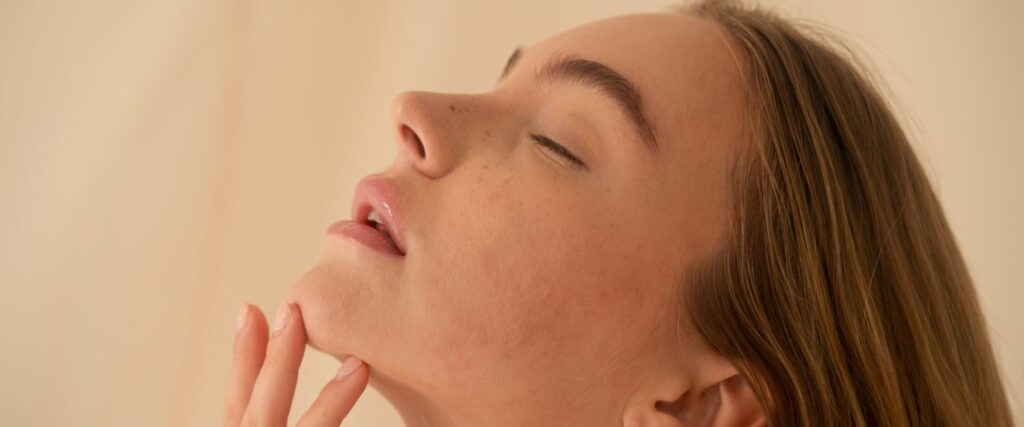A smooth, soft and hair-free face can be a real self-confidence boost, but facial skin is very delicate. No woman enjoys looking in the mirror and spying those unwanted chin hairs. It’s a common issue, and the easiest solution is… permanent chin hair removal!
Let’s explore the possible causes of hair growth in this area.
Causes of chin hair
There are reasons that cause hair to grow on the face, which may lead you to consider permanent chin hair removal:
- Age: the older you get, the more likely chin hair is to sprout;
- Genetics: the apple doesn’t fall far from the tree! Take a look at your mother or grandmother. Do they have chin hair? You may be looking into your future;
- Hormones: the production of hormones strongly affects the life cycle of each hair. Hormonal imbalances are often responsible for hair growth in unexpected areas of the body. During pregnancy and the menopause – periods of hormonal imbalance – hair is more likely to grow on the chin, and you may want to resort to permanent hair removal;
- Hirsutism, polycystic ovary syndrome and periods of high stress: these issues are also among the potential causes.
How many sessions are needed for permanent chin hair removal?
There is no set number of sessions that we can recommend to our customers to answer this question.
Everyone is different, with a different genetic makeup and different physical and hormonal characteristics.
At epìLate, we prefer to propose a unique solution: epìLife! It allows you to reach your goal via a cycle of sessions tailored to your specific needs. We guarantee results within 18 months, backed by a lifetime guarantee. It is available at participating epìLate centres, identified by the epìLife label.
Contraindications
Permanent chin hair removal does not normally have any side effects; contraindications typically arise when the treatment is performed by non-specialised staff. Reactions are typically of short duration and minimal concern. For example:
- redness and irritation (which disappear a few hours after treatment);
- burns and blisters (which only occur occasionally, if the staff performing the treatment are not specialised);
- etc.
Conclusion
Our specialised practitioners are experts in permanent hair removal: they undergo training before they start working with epìLate, and attend regular refresher courses.
See you soon: book your free consultation now!

